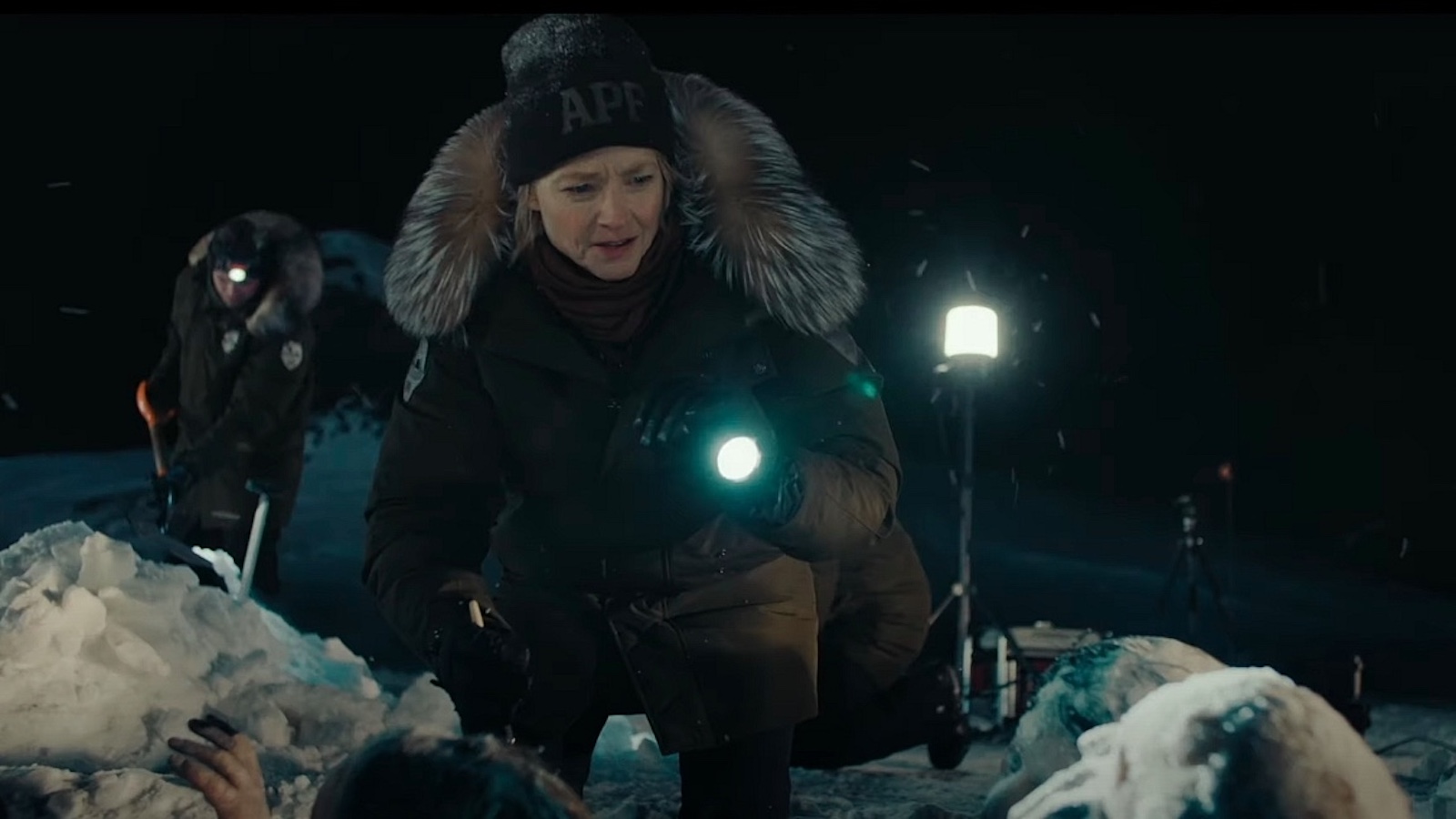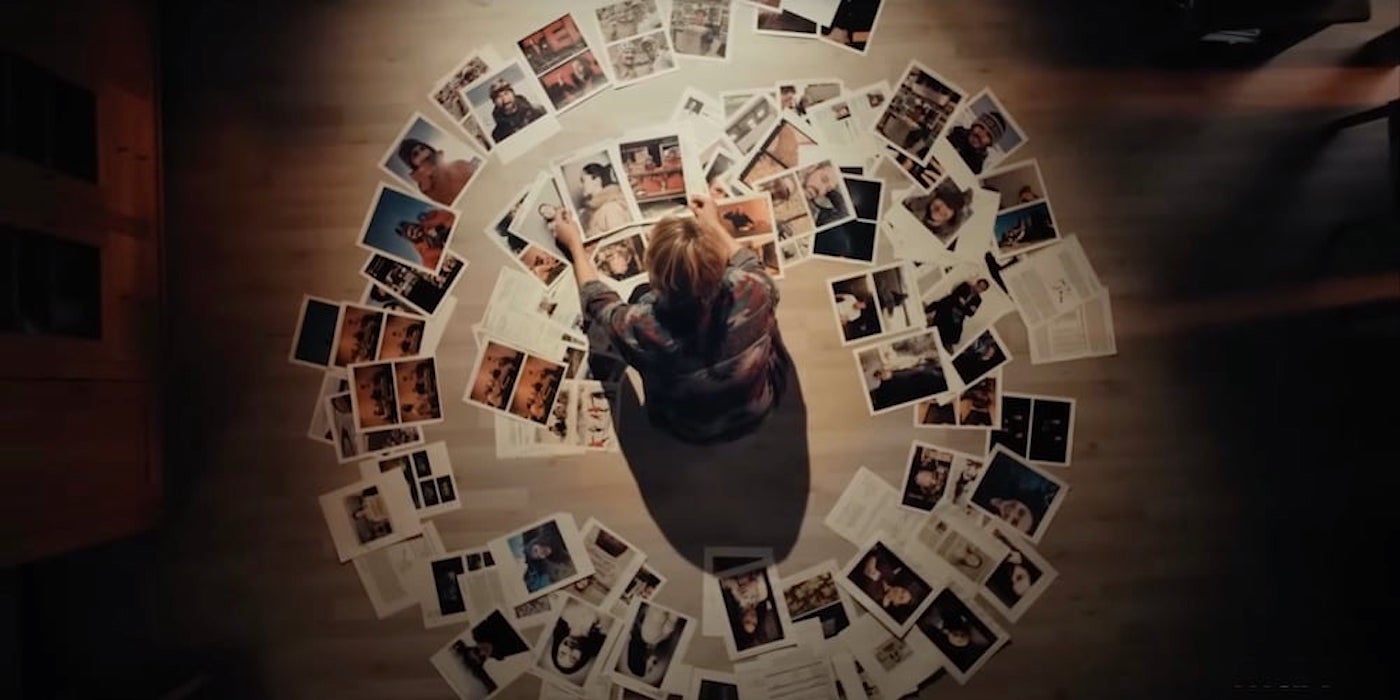The latest installment of the HBO franchise, “True Detective: Night Country,” departs from Nic Pizzolatto’s previous themes of tormented masculinity and instead presents a new six-episode mystery featuring Kali Reis as a co-star.

Premiering a decade after the first season and five years after the Mahershala Ali-led third season, True Detective: Night Country finds itself in a precarious position, engaging in a dialogue with and contrasting against the show created and guided by Nic Pizzolatto, as time continues to loop back on itself.
Night Country, created by Issa López, who wrote or co-wrote most of the season and directed all six episodes, is a nostalgic nod to the first season, as it reintroduces the unsettling blend of true crime and supernatural elements. While the season pays homage to the first season through direct references to imagery and dialogue, these nods seem superfluous and cater to the Pizzolatto-worshipping fans. Overall, Night Country deviates from the previous seasons in terms of theme and perspective.

Night Country departs from Pizzolatto’s usual brooding, masculine style and instead offers a female-centric narrative that humanizes and internalizes the anthology’s typically complex plot in a refreshing and impactful manner. However, as the first True Detective season to deviate from the standard eight-episode format, Night Country feels unnecessarily abbreviated in crucial aspects, failing to fully explore its most unique elements.
On December 17 in Ennis, Alaska, the last sunset of the year casts a foreboding shadow over the town. Situated 150 minutes north of the Arctic Circle, Ennis is a town embroiled in a long-standing conflict between the local mining company and the Indigenous community. Despite its size, Ennis is a place where tensions run high and the darkness of winter looms large.
At the TSALAL Arctic Research Station, which houses a small team of international scientists conducting enigmatic geological research, a catastrophic event has occurred. The entire staff has vanished, and their discovery is a ghastly frozen scene, reminiscent of a chilling Hieronymus Bosch depiction of hell. Despite minimal evidence, certain details – such as a sinister spiral symbol and a tongue – link the investigation to the unsolved murder of a Native woman, which has remained a cold case for six years. This tragedy continues to haunt Evangeline Navarro (Kali Reis), a former local cop now serving as a state trooper, who persistently seeks assistance from her estranged ex-partner and current Ennis chief of police, Liz Danvers (Jodie Foster).

Danvers is reluctant to revisit these painful memories, partly because she is haunted by her own personal demons. As many characters note, in Alaska, particularly during the endless winter, the living and the dead frequently cross paths. Danvers also has practical concerns, such as dealing with her increasingly rebellious stepdaughter Leah (played by Isabella Star LaBlanc), a senior officer who constantly undermines her authority (John Hawkes’ Hank), and the officer’s inexperienced son (Finn Bennett’s Pete). Furthermore, Danvers’ standing in the town is precarious due to a series of ill-advised sexual encounters that have made her unpopular with the town’s most influential figures, mostly cuckolded women.
Over the course of several weeks, Evangeline, Liz, and Pete must sacrifice the joy of the holiday season to confront painful memories of the past, delving deeper and deeper into the darkness of the inhospitable landscape and the night country.
While the first three seasons were dominated by men and their insecurities, often with deliberate intent, the new season is shaped by women and their demons, which are just as unsettling as those that tormented Rust Cohle, Ray Velcoro, and Wayne Hays in previous installments. The Arctic and Antarctic wilderness is often associated with masculine outlaw fantasies, the domain of rugged, bearded men. However, Ennis, a name that evokes truncated manhood, is a female space.
Similar to López’s spine-chilling debut film Tigers Are Not Afraid, which blends horror and coming-of-age themes against the backdrop of Mexico’s drug war, Night Country is an eerie work that presents supernatural elements that are as tangible as you want them to be. The story may be driven by general spirits and specific Indigenous superstitions, or they could be the result of an unsettling living situation where the boundaries between day and night, past and present, and the living and the dead become blurred and disorienting.

For True Detective fans, the uncertainty surrounding Night Country is risky. Many were disappointed with the first season’s finale, as they expected the Yellow King and pagan elements to lead to a supernatural conclusion, but it turned out to be a murder mystery rooted in natural evil. In Night Country, there are frequent jump scares and an eerie atmosphere, but mental health and the harmful effects of the environment are also discussed, along with the poisoning associated with the mines. It’s possible that everything in Night Country is paranormal, or it could all be rational. The story concludes with a resolution that I found both silly and consistent with the show’s themes, but it’s sure to divide opinions – pun intended.
I found the first True Detective finale less disappointing as I didn’t expect a supernatural resolution to the mystery. However, for the fourth season, I would have preferred a more grounded approach rather than a fantastical one. The series would benefit from delving deeper into the Iñupiat culture, which would make their mystical traditions feel more organic and less sensationalized. Additionally, exploring life in Ennis, including the mining business and price gouging at grocery stores, would make the location feel like a character and provide more opportunities for characters like LaBlanc’s Leah and Fiona Shaw’s Rose Aguineau to feel real.

I found True Detective’s use of Iceland as a filming location to be visually stunning, but at times lacking in originality and depth. While the setting should have been a unique selling point, I couldn’t help but draw comparisons to other end-of-the-world genre stories such as Insomnia, Whiteout, 30 Days of Night, Max’s The Head, and even FX’s current Murder at the End of the World. Despite the show’s branding and references to True Detective, Night Country ultimately feels like a blend of The Terror and Mare of Easttown.
Filming in Iceland, True Detective captures a mood that is visually stunning, but at times lacks originality and depth. While the setting should be a unique selling point, I found myself drawing comparisons to other end-of-the-world genre stories such as Insomnia, Whiteout, 30 Days of Night, Max’s The Head, and FX’s current Murder at the End of the World. Despite the True Detective branding, Night Country feels more like a combination of The Terror and Mare of Easttown.
In particular, Jodie Foster’s character, Danvers, serves as an exceptional proxy for Kate Winslet’s character in Mare of Easttown. As the story’s dedicated skeptic, Danvers challenges the more outlandish elements of the plot with her rough edges and impulsive decisions, providing a contrast to the searing intensity conveyed by Reis. While it’s not always clear how much “acting” Reis is doing, her compelling presence is undeniable.
In the True Detective-esque structure of the show, Foster and Reis excel in their roles, leaving the male characters in a secondary and unremarkable position. Bennett and Hawkes do their best with their roles, but the season ultimately falls apart when compared to the captivating performances of Danvers and Navarro. Even the talented Christopher Eccleston is limited to playing Danvers’ boss and occasional lover. The standout male performance comes from Joel D. Montgrand as Qavvik, a bar owner who loves Navarro for who she is.

The streamlining of the overall storyline in the Night Country home stretch, which apparently required three to four writers per episode, weakens the overall season but increases momentum toward a conclusion that worked conceptually. While no True Detective season has had a wholly satisfying ending, the rushed conclusion of Night Country is a plus.
